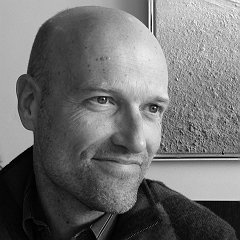Imagine a world in which virtually everyone at least intuitively understands the fundamental principles of information and computation. In such a world computing would be as natural to people as using a calculator or making plans for the weekend. Computer science, however, is still a young field compared to others and lacks maturity, despite the enormous demand created by information technology. To address the problem we would like to encourage everyone in the computer science community to go back to their favorite topic and identify the absolute basics that they feel are essential for understanding the topic. We present here our experience in trying to do just that with programming languages and runtime systems as our favorite topic. We argue that understanding the construction of their semantics and the self-referentiality involved in that is essential for understanding computer science. We have developed selfie, a tiny self-compiling C compiler, self-executing MIPS emulator, and self-hosting MIPS hypervisor all implemented in a single, self-contained file using a tiny subset of C. Selfie has become the foundation of our classes on the design and implementation of programming languages and runtime systems. Teaching selfie has also helped us identify some of the absolute basics that we feel are essential for understanding computer science in general.
Christoph Kirsch is Professor at the Department of Computer Sciences of the University of Salzburg, Austria. He received his Dr.Ing. degree from Saarland University, Saarbrücken, Germany, in 1999 while at the Max Planck Institute for Computer Science. From 1999 to 2004 he worked as Postdoctoral Researcher at the Department of Electrical Engineering and Computer Sciences of the University of California, Berkeley. He later returned to Berkeley as Visiting Scholar (2008-2013) and Visiting Professor (2014) at the Department of Civil and Environmental Engineering as part of a collaborative research effort in Cyber-Physical Systems. His research interests are in concurrent programming, memory management, virtualization, and automated theorem proving. Dr. Kirsch co-invented embedded programming languages and systems such as Giotto, HTL, and the Embedded Machine, and more recently co-designed high-performance, multicore-scalable concurrent data structures and memory management systems. He co-founded the International Conference on Embedded Software (EMSOFT) and served as ACM SIGBED chair from 2011 until 2013 and ACM TODAES associate editor from 2011 until 2014. He is currently associate editor of IEEE TCAD.
Fri 27 OctDisplayed time zone: Tijuana, Baja California change
13:30 - 15:00 | |||
13:30 30mTalk | Infra: Structure All the Way Down - Structured Data as a Visual Programming Language Onward! Papers | ||
14:00 30mTalk | Selfie and the Basics Onward! Papers Christoph Kirsch University of Salzburg | ||
14:30 30mTalk | Systems Level Liveness with AnonSystem Onward! Papers | ||
